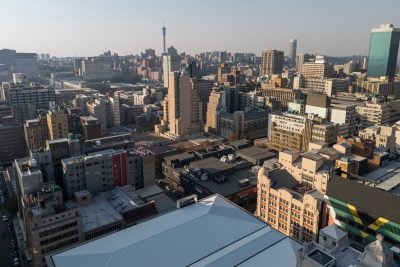When African Business magazine’s French language sister publication interviewed Grégory Clemente, CEO of Proparco, the private sector arm of the French Development Agency (AFD), less than a year into his new post in 2017, he set out an ambitious strategy to double in size, expand equity investments and ensure at least 50% of its activities were on the African continent.
Five years on, many of those ambitions have been realised at Proparco, which takes direct stakes in companies and invests in private equity and specialised funds. In 2018, Proparco appointed a dedicated team to look exclusively at equity investments. Proparco’s equity investments globally have ballooned from €100m ($117.6m) in 2016 to €450m in 2019.
The expansion was replicated in the group’s wider activities, with total yearly commitments reaching €2.5bn in 2019, up from €1bn in 2017. For Clemente, the fact that Proparco has exceeded its targets of five years ago validates its change of strategy and proves its commitment to the continent.
At the heart of the expansive investment strategy was a continent-wide approach to investing. Clemente moved to his current post in 2016 at the same time as the AFD appointed Rémy Rioux as its new head. Rioux’s appointment signalled a shift in approach to investing in the continent, with the AFD becoming the first DFI to treat it as a homogenous entity rather than divided between North and sub-Saharan Africa.
For Clemente, this rational approach mirrors the desires of the companies they invest in to grow both regionally and continentally, and more so today in light of the opportunities provided by the African Continental Free Trade Area (AfCFTA).
“The businesses and the banks that have grown to a certain scale are adopting a regional strategy, and we need to be able to accompany their regional and continental strategies,” he tells us. “So we wanted to remove those artificial barriers that can be constraining. You’ve got be able to adapt to this continental outlook, which is even more important with the launch of the AfCFTA.”
Expanding footprint
The approach has allowed Proparco to expand its geographical footprint. While an important proportion of its investments are in Francophone countries, Proparco is increasingly active in other markets. The firm now has six regional offices on the continent including in Johannesburg, Nairobi and Lagos, as well as antennas in other capitals, with 90 full-time staff members on the ground across Africa and other offices around the world.
Proparco, increasingly active in economies such as Kenya and Nigeria, is following the lead set by French President Emmanuel Macron, who has made state visits to both countries. Last year, in a return visit, Kenyan President Uhuru Kenyatta and a number of high profile business leaders visited France.
Macron has also made a habit of rolling out the red carpet to African industrialists such as Aliko Dangote during his jamboree in Versailles that usually takes place immediately before the World Economic Forum in Davos. On the back of these meetings, French industrial group Axens partnered with the Nigerian BUA Group to build a refinery project in Akwa Ibom State, Nigeria.
Pandemic slows activity but prospects improving
While ties between France and Africa are flourishing, Clemente admits the pandemic slowed activity, with many transactions pushed back.
There were also changes to the Digital Africa initiative, which was launched by AFD in 2018 to great fanfare, but Clemente says that the firm will continue to engage with the sector.
“We’re still fully engaged with startups and tech companies, through our financing of incubators, accelerators and tech hubs on the continent. We launched a $5m bridge fund last year exclusive for startups, which have been hit hard by the pandemic.”
But he remains confident that activity will pick up and says 2021 activity is already gathering pace.
“Last year was a difficult year in so much as companies themselves did not know how things would evolve, so any talk of M&A or investments were largely off the table. But there is definitely greater appetite: we feel that 2021 will be a good year and the pipeline is actually growing and shaping itself nicely and at pace,” Clemente explains.
Clemente says that throughout all their interventions, including debt, equity and guarantees, they will be providing over €2bn of funding this year. The firm is able to make use of its own capital and mobilise other sources, including investment capital, insurance and pension funds.
Collaborations with DFIs are also taking off – AFD organised a meeting in November that brought together over 450 public development banks operating around the world. On the back of this meeting, Clemente says, the partners initiated $4bn worth of commitments to support SME finance in Africa by 2021, with Proparco putting up €1bn.
Replicating a domestic French government programme, Proparco has also initiated a programme to provide 80% guarantees on loans made to SMEs. They have partnered with Société Générale, a retail bank active in a number of Francophone African countries, and hope to roll out the scheme with other local banks.
Proparco is planning on deploying lending guarantees of €100m – thus enabling €125m of loans. In the countries where these loans have been made – Côte d’Ivoire, Senegal, Cameroon and Madagascar – SMEs have benefited from loans ranging from €8,000 to €60,000.
Clemente says that such initiatives will help to drive an economic recovery following the pandemic, and says that financial institutions can play a key role in helping businesses get back on their feet.
“Access to finance is key. It’s still an important obstacle and SMEs still struggle to access finance. Another problem is that many MSMEs operate in the informal economy and we need to help to formalise their activities. For the more mature businesses, we need to strengthen their capital base. They are too often under-capitalised and this is why we put an emphasis on equity investments.”
Looking to the future, Clemente says that the firm’s work on “upstream” activities – investment in feasibility studies to develop bankable projects – and their focus on impact and climate will continue to help Proparco grow and set even more ambitious targets on the continent.
Want to continue reading? Subscribe today.
You've read all your free articles for this month! Subscribe now to enjoy full access to our content.
Digital Monthly
£8.00 / month
Receive full unlimited access to our articles, opinions, podcasts and more.
Digital Yearly
£70.00 / year
Our best value offer - save £26 and gain access to all of our digital content for an entire year!
 Sign in with Google
Sign in with Google 



